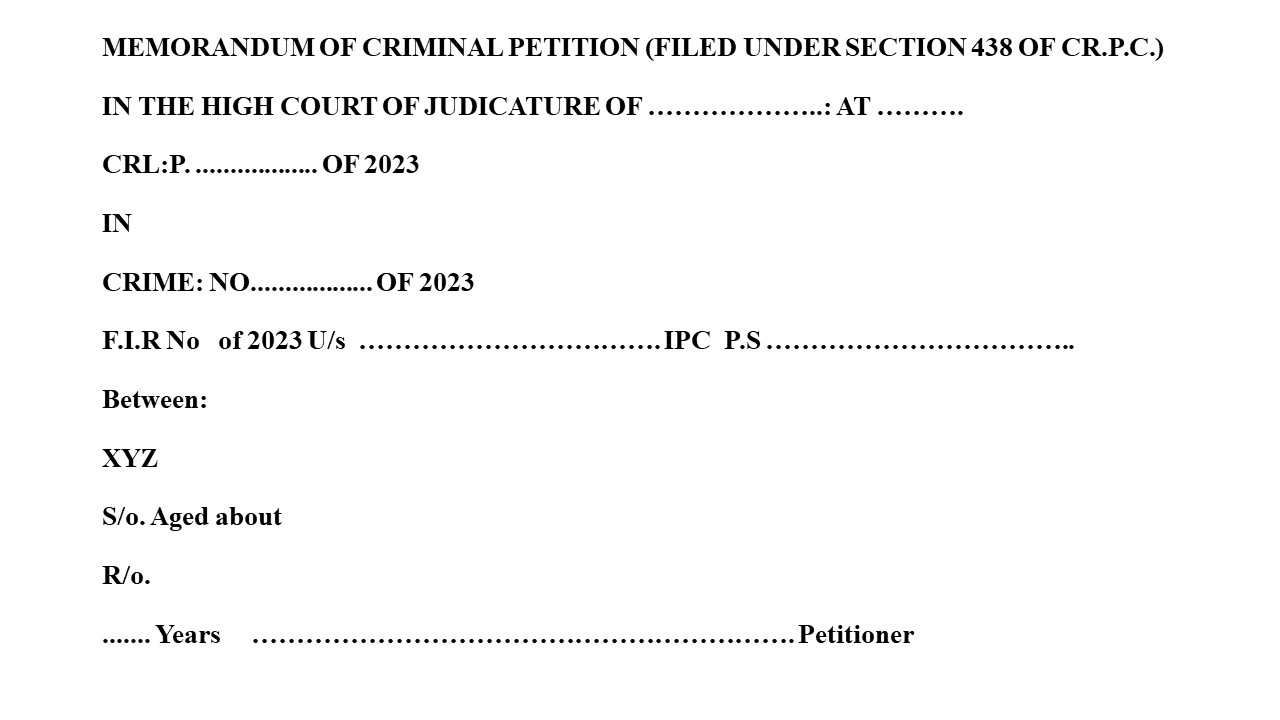Reviews
M.R.P. : ₹ 354.00
(Inclusive of all taxes)
Details
- Format for Anticipatory Bail Petition High Court - Format for Anticipatory Bail Petition High Court is Anticipatory bail is a legal provision that allows a person to seek pre-arrest bail from a court to prevent their arrest in anticipation of being accused or arrested for a non-bailable offense. A non-bailable offense is a more serious criminal offense for which bail is typically not granted as a matter of right. Circumstances for Seeking Anticipatory Bail: A person can file an anticipatory bail petition if they have a reasonable apprehension of being arrested in connection with a non-bailable offense. This apprehension could be based on genuine reasons such as false accusations, a fear of being falsely implicated, or other factors. Procedure for Filing Anticipatory Bail: To seek anticipatory bail, a person needs to file an application or petition before the appropriate court. The petition should detail the reasons for seeking anticipatory bail and provide any supporting evidence or arguments that establish the need for such relief. The court will then consider the petition. Conditions and Safeguards: The court may grant anticipatory bail if it believes that the petitioner has a valid apprehension of arrest and that their detention is not necessary for the investigation. However, the court can impose certain conditions while granting anticipatory bail. These conditions may include reporting to the police, refraining from tampering with evidence or witnesses, or any other conditions deemed necessary by the court. Duration of Anticipatory Bail: Anticipatory bail is not permanent; it is usually granted for a specific period, and the petitioner must renew the bail if required. Revocation: The court may also revoke anticipatory bail if it believes that the petitioner has violated the conditions or if new circumstances arise that warrant the revocation. Non-Obstruction of the Investigation: Importantly, while granting anticipatory bail, the court should ensure that the investigation is not obstructed, and the petitioner should cooperate with the investigating authorities.
